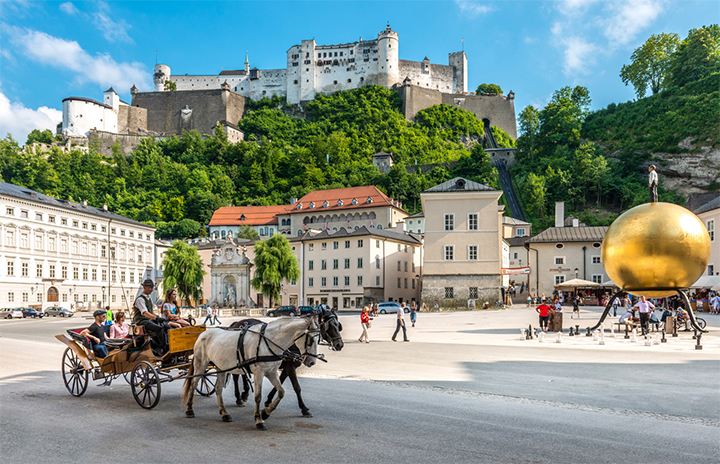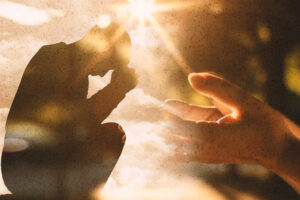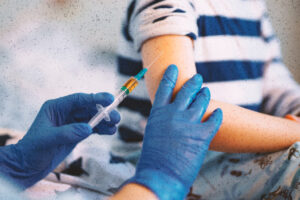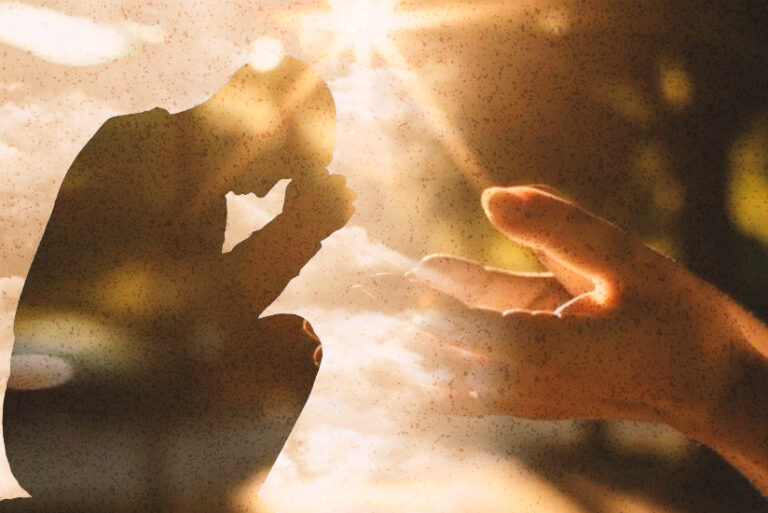Salzburg in Austria is world-renowned for its musical legacy, usually associated with Mozart and ‘The Sound of Music’. Join gastroenterologist Dr. Jun Ruiz in a day trip to this picturesque town in the midst of lofty mountains and feel the hills becoming alive with the sound of music humming in your mind
Austria is the beautiful Central European country of contrasts. You will be captivated by this landlocked Alpine destination with its gorgeous landscape scenery of majestic mountains, deeply carved valleys, meadows with flowers in full bloom, and sparkling lakes. This breathtaking outdoor scenery is complemented by Austria’s fascinating historical and cultural heritage, making your visit unforgettable.

The country is famous for its unrivalled Baroque churches, pompous palaces, and other architectural masterpieces. Furthermore, Austria has been a world-renowned center for music, with famous legendary composers like the 18th century classical music genius Wolfgang Amadeus Mozart.
Like its beautiful neighboring country Switzerland, Austria is officially a neutral state. Austria consists of nine federated states, and its capital is Vienna. Though many tourists go to Vienna, Salzburg is Austria’s most popular destination. It is Austria’s fourth-largest city, and the capital of the province of the same name. Its name literally means “Salt Fortress”, because of barges that carried salt on Salzach River in the 8th century. It was founded as an episcopal by the Benedictine monks and became a seat of the archbishop during that period.
Like Vienna, Salzburg boasts a rich cultural legacy but is uniquely located in a picturesque setting in the midst of lofty mountains. This breathtaking beauty of the Alpine milieu never fails to captivate the inspired visitor. Adding prestige to the enchanting city’s reputation, it is also the home city of Mozart and the site of the annual Salzburg Music Festival.
The pop culture influence of ‘The Sound of Music’
Rarely has a great movie touched millions of people around the world as the 1965 musical “The Sound of Music”, filmed in Salzburg and inspired by the true story of Maria and the von Trapp family. The film is loved by many generations of movie fans over the past five decades. The iconic movie has been shown multiple times in the theaters and on cable television, explaining its enduring appeal to old and new fans. No trip to Salzburg would be complete without visiting the original filming locations. It is not surprising that “The Sound of Music” tours attract more than 300,000 visitors annually.
When my sisters and I decided to visit Munich in Germany for a few days coming from Basel (Switzerland), Salzburg was one of our must-see itineraries. We were all overjoyed and excited to chase the magic of the classic movie. Salzburg is around 120 minutes away from the Bavarian capital by train. Due to convenience, we chose to go on a day tour to Salzburg as we were staying in Munich for four nights.
The earliest train to Salzburg included in our Bayern ticket was at 10:30 AM. I chose to buy an additional ticket for the 7 am train, so I could catch the start of the Hop On Hop Bus in Salzburg at 9:30 to maximize my day tour. My sisters left at 10 and caught up with me at noon at the train station.
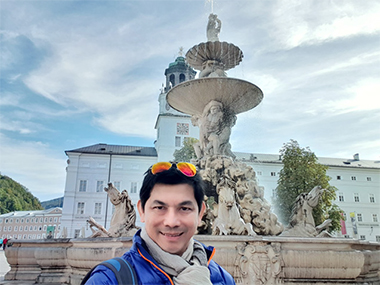
Old Town
After studying the scheduled stops of the tour, I went first to the beautiful Old Town (Altsadt) in the morning as my sisters wanted to see the more popular filming locations of the movie later in the afternoon. The Old Town is world-famous for its best-preserved city center and built almost entirely in Baroque architectural style. This is a compact neighborhood of narrow medieval streets, arcaded courtyards and vast squares. Here one can see several magnificent churches, squares, fountains, archbishop’s residences, and Mozartrelated attractions. It is now recognized as a UNESCO World Cultural Heritage Site.
At my first stop, I paid homage to the city’s most famous son, Wolfgang Amadeus Mozart, at the Mozart Square located in Old Town. Standing in the middle of the square is the Mozart Monument. This statue was cast in bronze and unveiled in a ceremony in 1842 in the presence of Mozart’s sons. Mozart Square is a popular attraction in its own right. You can go to the Mozarts Birthhouse (Geburtshaus), located nearby at the main street of Getreidegasse, where he was born in 1756 and lived there until he was 17. The house is now a popular museum devoted to Mozart and his collection of interesting memorabilia and letters. If your time only allows you to visit one Mozart-related site, let it be this historic house. The Salzburg Festival is the largest opera festival in Europe and honors Mozart.
Residentzplatz
I walked for a few minutes and ended up at the beautiful Residence Square (Residenzplatz) located at the very heart of Old Town and is the biggest square here. This stately square was built by Italian architect Vincenzo Scamozzi, who had earned respect for his work in Piazza di San Marco in Venice. The square is frequently used for concerts and celebrations. There are seven squares in Old Town, and the center looks like a medieval Italian-styled centro citta.
The centerpiece of Residenzplatz is the spectacular marble masterpiece Horse Fountain (Residenzbrunnen), the finest Baroque fountain outside of Italy. The splendid sculpture is 15-meter-high, and is divided into several sections. The base shows four lovely horses springing from the central rock that stands four men carrying the lower basin. There are three dolphins on the first basin that is topped by a second basin which the Greek sea god Triton is holding a conch-shell trumpet where water jets into the air. For the fans of “The Sound of Music”, the Residenzplatz was a highlight where Maria belts out “I Have Confidence in Me” as she playfully splashes the fountain water on her way to the Trapp villa.
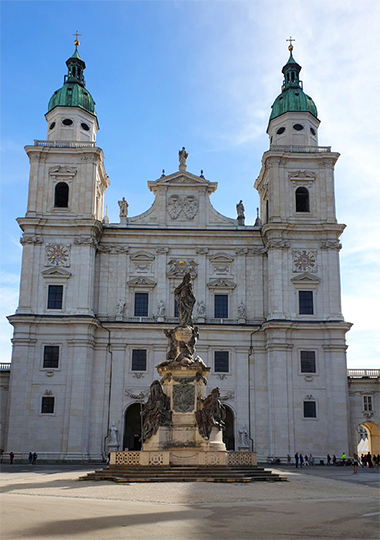
Flanking the square are the old and new residences of the archbishops. The Old Residenz Palace is the most pompous building in town, being the previous home of Salzburg’s once powerful princearchbishops. This is still used for state receptions and there is now the Residenz Gallery, which is an art gallery of 16th to 19th century European paintings. Across this is the New Residenz, which houses the provincial government offices, a carillon (Glockenspiel), and the Salzburg Museum that contains Baroque and modern paintings.
Two dozen churches are situated in the area of the Old Town, and Salzburg received the honorable nickname “Rome of the North”. Also surrounding the square is the prominent Salzburg Cathedral (Dom zu Salzburg), the first cathedral and most sacred in Salzburg. It was built in 774 and rebuilt several times over the centuries, becoming a model of Baroque architecture north of the Alps. The cathedral façade is made of marble, and has twin towers with curved gables. There are four colossal marble statues and three bronze doors at the entrance. The cathedral is equipped with five organs. Other churches in the Old Town include St. Peter’s Church, the Collegiate Church, the Franciscan Church, the Nonnberg nunnery, and St. Michael’s Church.
Leopoldskron and Hellbrunn Castles
By lunchtime, I went back to the train station and met with my sisters. The next stop was the Schloss Leopoldskron, built in 1736, beautifully reflecting over a large pond and picturesquely located by the surrounding mountains. The Baroque palace is presently privately owned and functions as a boutique hotel. Since we were not hotel guests, most of the fans like us are limited to free views across the pond with the palace in the background. The palace served as the primary location for all of the lake terrace scenes in the movie, including the scene of Maria and the children falling off the boat. It was also the original location of the gazebo that was eventually moved nearby.
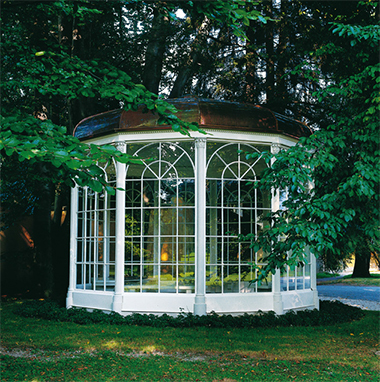
The top attraction in this estate is the timeless gazebo or the pavilion that one can see for free. It was used for the filming of the romantic scenes in the movie when Liesl sings “16 going on 17” and later when Maria and the Captain sing “Something Good”. The gazebo was transferred from its original location to this more tourist-friendly site. The public is not allowed inside the gazebo, but you can walk up to a distance and dance around it.
The next stop Schloss Hellbrunn was more exciting for movie fans like us. It is located 4 km south of Old Town and was once a summer residence for the prince-archbishop. The palace interior has grand ball rooms and large reception halls as it was previously used for festivities and entertainment. The estate is surrounded by lovely flower gardens, trick fountains, scenic grottoes, pools, and the large Hellbrunn Park which is perfect for family picnics or long walks.
Mirabell Palace
Schloss Mirabell (Mirabell Palace) was originally built as a mansion by the prince-archbishop Wolf Dietrich in 1606 for his mistress and their children. His successor renamed the palace as “Mirabell”, meaning beautiful sight. This was later rebuilt as a royal Baroque palace with exquisite interiors and lovely frescoes. Mirabell Palace is now a civic administration building, which holds the mayor’s office and the famous Marble Hall, a venue for concerts and weddings.
The palace is surrounded by the Baroque-style Mirabell Gardens, several symmetricalshaped landscaped pleasure gardens adorned with many marble statues and scenic water fountains, like the central sprouting Grand Fountain, and the Pegasus Fountain. Movie fans would recognize the gardens, fountains, and the pair of Greek fencing statues as Maria and the children danced past the fountains and throughout the garden in the end of the song “Do Re Mi”. We had a great time reminiscing the movie scenes here at Mirabell.
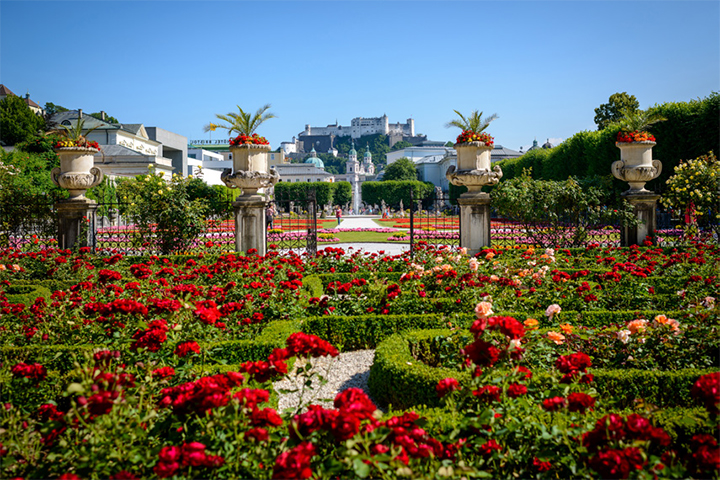
A highlight of a tour in Salzburg, literally, is the Hohensalzburg Castle, a fortress perched on the rocky peak of Festungsberg. It was built in 1077 by Archbishop Gebhard during the wars between the Holy Roman Empire and the Papacy. The castle served as a sanctuary for Salzburg archbishops whenever they felt threatened. It towers above the rooftops of the historical Old Town and offers breathtaking views over Salzburg. A funicular provides easy access up the hill. Due to lack of time, we had to skip Hohensalzburg, and took a bus from Mirabell back to the station to catch our scheduled train.
Though we were unable to tour all the movie’s iconic filming locations, including the further out in St. Gilgen and Marktschellenberg where the opening scene was shot, we went home very happy, full of joy and contentment. As we rode the train from Salzburg back to Munich, surreal images from the movie and from our day trip continued to cast a magic spell on us while we gazed on the hills becoming alive with the sound of music. VOL. 19 ISSUE 3 MARCH 2020
